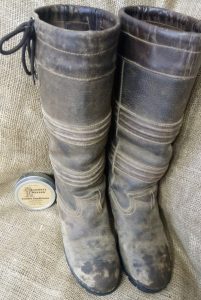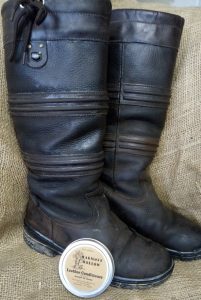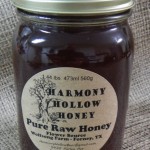You may have seen pictures of the massive mosquito outbreaks posted on social media this week. Because of the numbers of mosquitoes – it looks like some heavy spraying will occur in the affected areas. If you have hives that will be in the region affected – please take note of the information below.
A statement by the Texas Apiary Inspection Service (TAIS) and another from the Texas Department of Health is copied below:
—————
Greetings Texas Beekeepers,
Texas Apiary Inspection Service (TAIS) has received the following notice form the Texas Department of State Health Services (DSHS) in regards to spraying for mosquitoes in the aftermath of hurricane Harvey. As I’m sure you can imagine with the massive amounts of rain the state received also comes a huge influx of mosquitos. To get a better understanding of exactly how bad the mosquito outbreak is please see the following article- http://citybugs.tamu.edu/2017/09/06/and-now-its-mosquitoes/
There are a few things you as beekeepers can do to help minimize contact of your bees to the spray. First, if possible, move your hives to locations outside of the spray areas. If you are not able to move your hives you can cover them with a tarp or other solid surface to reduce the amount of spray that comes in contact with the hives. One very important thing to remember is to not completely block the entrance to the hives and to allow for some ventilation so your hives do not over heat. After the spraying, and when you feel comfortable going outside, you can wash down the exterior surfaces of the hives with water to remove any residual residue. Keep in mind that the insecticide is designed to breakdown quickly and is not active for very long after the spray.
Please take the time to read to attached materials and the press release below. If you have questions about pesticide applications please contact your county mosquito control. TAIS does not have information about spray schedules. As more information becomes available we will update you via email.
Thank You,
Mark Dykes
Chief Apiary Inspector
Texas Apiary Inspection Service
2475 TAMU
College Station, TX 77843-2475
Tel. 979.845.9714; Fax 979.845.0983
mdykes@tamu.edu
http://txbeeinspection.tamu.edu
Subject: DSHS News Release: Texas to conduct aerial mosquito control in wake of Hurricane Harvey
Texas to conduct aerial mosquito control in wake of Hurricane Harvey
The rain left behind by Hurricane Harvey has created large areas where mosquitoes can lay their eggs. To address increasing numbers of mosquitoes and the risk they pose to the recovery effort and public health, the Texas Department of State Health Services has activated its contract for aerial mosquito control and requested additional mosquito control assistance from the Federal Emergency Management Agency. Aerial spraying targeting mosquitoes will begin around dusk Thursday over Refugio and Bee counties, weather permitting.
Most mosquitoes that appear after floods are nuisance mosquitoes that don’t spread disease but can have a serious effect on recovery operations by preventing responders and people affected by a disaster from being outside. Areas of standing water can also increase the number of mosquitoes capable of spreading diseases like West Nile virus and Zika.
Aerial application of insecticide, when applied according to label instructions by a licensed professional, is the most effective way to rapidly reduce the number of mosquitoes in a large area and does not present a risk to people, pets or other animals.
A small amount of insecticide, one to two tablespoons per acre, is dispersed by airplanes equipped with nozzles that create ultra-low volume droplets just the right size to kill mosquitoes. The tiny droplets are calibrated to float in the air for a period of time and kill adult mosquitoes on contact while limiting exposure to other animals and people. Once any remaining droplets settle to the ground, they quickly break down on surfaces, in water and in sunlight.
The small amount of insecticide used does not pose a health risk to people, pets or the environment in the area. According to the Environmental Protection Agency, people may prefer to stay inside and close windows and doors when spraying takes place, but it is not necessary.
Spraying is also done to minimize any effects on beneficial insects like bees. Applications will be done starting around dusk when mosquitoes are most active and after bees have returned to their hives for the night. The insecticides dissipate and break down quickly in the environment, and when bees emerge in daylight, they are not affected. Although this type of application will not cause a significant exposure for bees, beekeepers may choose to cover their colonies and prevent bees from exiting during treatment.
Flights will be conducted by Clarke, Texas’ environmental services contractor, using three twin-engine Beechcraft King Air planes. Crews will be working from dusk to dawn beginning Thursday night with Refugio and Bee counties, areas identified as priorities. Texas is also expecting additional support from the U.S. Air Force Reserve’s 910th Airlift Wing flying two specially equipped C-130H cargo planes in the coming days in areas over the upper Texas coast. DSHS will continue to coordinate with county governments that have requested aerial mosquito spraying and will update information as flight plans are finalized.
People can help control mosquitoes during the recovery effort by dumping out standing water around their homes and businesses and applying a commercially available larvicide in water that can’t be drained. People should also avoid mosquito bites by using an EPA-registered mosquito repellent every time they go outside and making sure their window and door screens are in good repair after the storm to keep mosquitoes out of homes.
-30-
(News Media Contact: Chris Van Deusen, DSHS Director of Media Relations, 512-776-7119)












